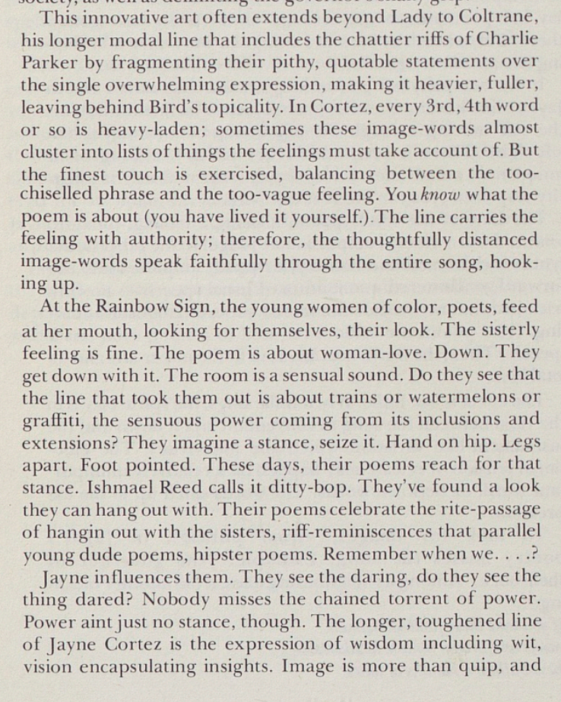This artful essay, from the multicultural literary journal Yardbird, aims to capture on the page the feminist energy of Jayne Cortez’s performance at the Rainbow Sign.
Yardbird had been founded by the poet-essayist-novelist Ishmael Reed, who—like so many Black writers in the 1960s and 1970s—was concerned with rearticulating American identity and the American literary canon. Yet Yardbird was different from many contemporary productions spearheaded by black writers, according to literary historian James Smethurst, as it was less interested in consolidating “a unified Black nation or unitary Black national culture” and more devoted to “emphasiz[ing] alternative, ethnic literary traditions as relatively coherent wholes rather than simply publishing individual authors ‘of color'” (The Black Arts Movement, 287).
Clyde Taylor’s essay observing a Rainbow Sign performance by the politically engaged, jazz-shaped poet Jayne Cortez is attentive both to the way the poet’s femininity shapes her work and to the Rainbow Sign’s atmosphere of sisterhood. Perhaps most interestingly, Taylor pays special attention to Cortez’s ability to inspire awe and adoration among the young female members of the audience: “young women of color, poets, feeding at her mouth.” At the same time, Taylor suggests that Cortez reaches beyond the specificity of her body and her experience, managing to write “about being whole, in a shitty, fragmented world.”
***
Though Yardbird was dedicated to diversity in spirit and practice, the cover of this particular issue illustrates the limits of many radical organizations during this time: they were often male-dominated. Yardbird, it seems, was no exception to the larger demographic trend.
